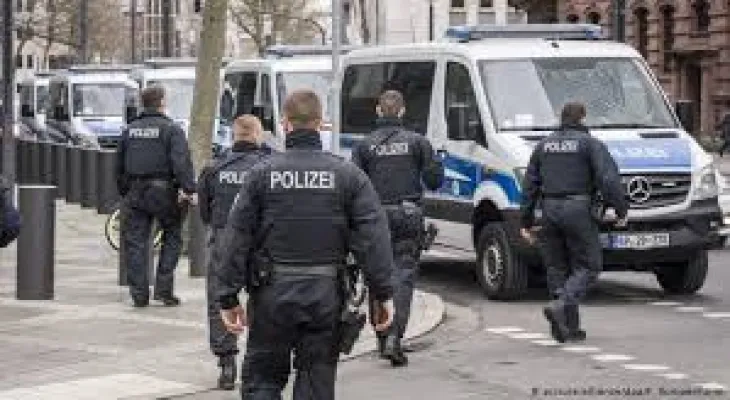Search here
Newspaper
Search here

Arab Canada News
News

Published: July 24, 2024
The German government on Wednesday banned an organization accused of being a "front" for religious rule in Iran, promoting its leadership's ideology and supporting the Lebanese Hezbollah group. Police raided 53 properties across the country, including a prominent mosque in Hamburg.
The ban on the Islamic Center in Hamburg, or IZH, and five subsidiary organizations throughout Germany, followed searches in November.
Interior Minister Nancy Faeser stated that the evidence gathered in the investigation “confirmed serious suspicions to the extent that we ordered the ban today.”
Faeser clarified in a statement that IZH "promotes an extreme totalitarian ideology in Germany," while it and its subsidiaries "also support the Hezbollah group and spread aggressive antisemitism."
Her ministry stated that "IZH, as the direct representative of the Supreme Leader of the Islamic Revolution in Iran, aggressively and militantly disseminates the ideology of the Islamic Revolution and seeks to instigate such a revolution in the Federal Republic of Germany."
The distinctive blue-tiled Imam Ali Mosque in Hamburg, a prominent facility associated with the group, was among the properties raided by police early on Wednesday. Raids also occurred in Berlin and six other German states.
IZH has long been monitored by the German domestic intelligence agency, which stated in its annual report for 2023 that it is the most significant representative of Iran in Germany alongside the country's embassy.
It added that there are no reliable figures regarding the members or supporters of the group, which was founded in 1962. Calls for its ban have been made for years.
The Islamic Republic News Agency reported that the Iranian foreign ministry responded to the closure by summoning Germany's ambassador to Tehran, Hans-Udo Muzel.
The report stated that the ministry's director for Western European countries, Majid Nili Ahmad Abadi, "strongly objected" to the ban and described it as a "hostile act" that contradicts "the fundamental principles of human rights."
The German Ministry of the Interior stated that due to the ban, four Shia mosques in the country will be closed. IZH's assets are also being seized. There are an estimated 150 to 200 Shia sects in Germany, according to the ministry, which confirmed that it does not act against any religion.
IZH stated last fall that it "condemns all forms of violence and extremism and always calls for peace, tolerance, and interfaith dialogue."
The Ministry of the Interior noted that while the group tries to present itself as a tolerant and purely religious organization without political connections or agendas, "investigations have confirmed without any doubt that IZH's activities are not merely of a religious nature."
It stated that the group's purpose and activities contradict the German constitutional order.
Andy Grote, the senior regional security officer in Hamburg, announced that the group has now become part of "history." He stated that "closing this foothold of the inhumane Iranian regime is a truly effective blow against extremism."
The main Jewish organization in Germany welcomed the ban. Joseph Schuster, president of the Central Council of Jews, stated in a release: "The Iranian mullah regime and its agents are present throughout the world – their goal is to destroy democracy and our way of life."
Hezbollah is banned in Germany. The Iran-backed group and Israel exchange fire almost daily across the Lebanese-Israeli border since the outbreak of war between Israel and Hamas in Gaza in October.
Comments